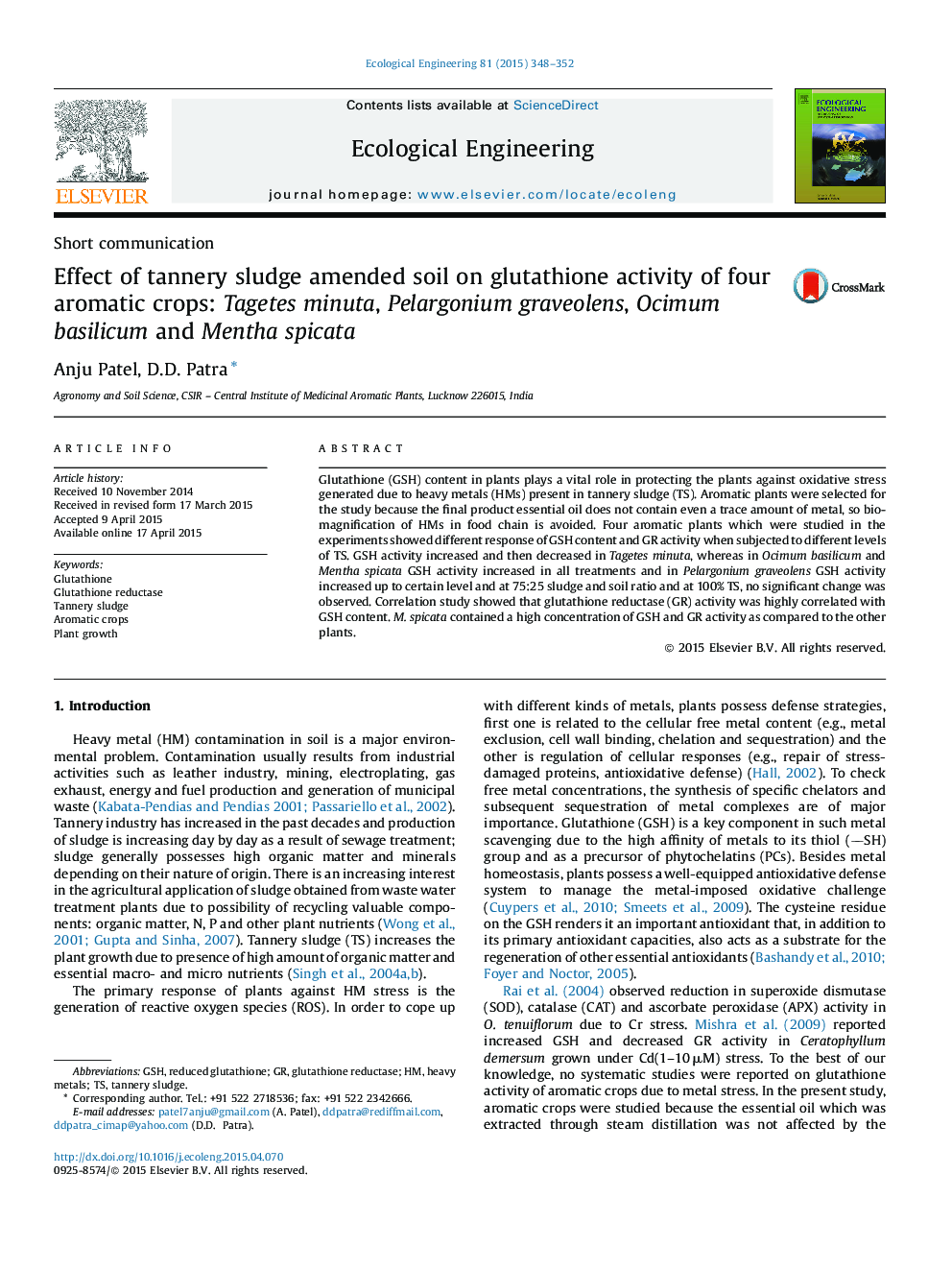| Article ID | Journal | Published Year | Pages | File Type |
|---|---|---|---|---|
| 4389092 | Ecological Engineering | 2015 | 5 Pages |
•The study deals with the changes in glutathione activity of four aromatic plants when grown on tannery sludge treated soil.•GSH activity increased and then decreased in T. minuta.•O. basilicum and M. spicata GSH activity increased in all the treatments.•In P. graveolens GSH activity increased upto 50:50 ratio of sludge and soil and remain unchanged as the concentration of tannery sludge increased in treatments.•Glutathione reductase (GR) activity increased in four studied plants.
Glutathione (GSH) content in plants plays a vital role in protecting the plants against oxidative stress generated due to heavy metals (HMs) present in tannery sludge (TS). Aromatic plants were selected for the study because the final product essential oil does not contain even a trace amount of metal, so bio-magnification of HMs in food chain is avoided. Four aromatic plants which were studied in the experiments showed different response of GSH content and GR activity when subjected to different levels of TS. GSH activity increased and then decreased in Tagetes minuta, whereas in Ocimum basilicum and Mentha spicata GSH activity increased in all treatments and in Pelargonium graveolens GSH activity increased up to certain level and at 75:25 sludge and soil ratio and at 100% TS, no significant change was observed. Correlation study showed that glutathione reductase (GR) activity was highly correlated with GSH content. M. spicata contained a high concentration of GSH and GR activity as compared to the other plants.
Graphical abstractFigure optionsDownload full-size imageDownload as PowerPoint slide
